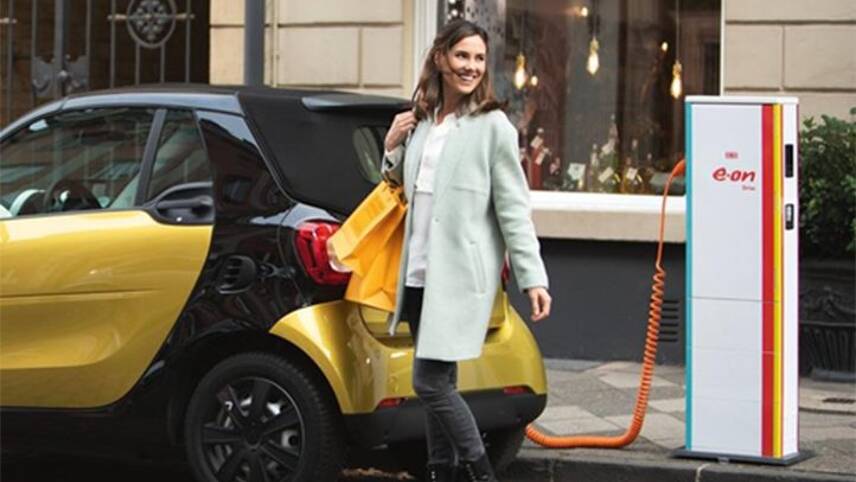Register for free and continue reading
Join our growing army of changemakers and get unlimited access to our premium content

What’s happening to the EV market in 2022?
SMMT’s industry outlook in January puts the 2022 EV market on course for 1.9 million units, which is up 15.2% on 2021 but still down by 17.9% on pre-Covid 2019¹. Covid restrictions have now been lifted in the UK, and we are all more climate conscious, this market is looking to boom this year, bar the chip shortages which continue to impact supply.
One in five buyers has now gone electric and with the rapid pace of change, the latest market outlook forecasts registrations of BEVs and PHEVs to grow by 61% and 42% respectively in 2022, meaning that, by the end of the year, almost one in four new cars would come with a plug.
Tax incentives and pollution charges
Government incentives, such as the benefit-in-kind (BIK) tax exemption and the ability for businesses to claim 100% of the cost of an EV against annual profits for the year purchased, makes switching to EV a no-brainer.
Many urban areas are introducing pollution charges, such as the Ultra Low Emission Zone (ULEZ) in London, and Clean Air Zones in Birmingham, Bath and Portsmouth, of which EVs are exempt from these charges.
The industry is also calling for an extension to incentives and mandated charge-point targets to accelerate consumer uptake and maintain Britain’s attractiveness against competitor markets.
Travel distance for an EV
‘Range anxiety’ should soon be a thing of the past, with the Government expecting every motorway service station in the UK to be offering at least six EV rapid chargers by 2023. E.ON’s ultra-fast charging stations are capable of boosting the batteries of the latest generation of electric cars with a range of around 100 miles in just 10 minutes. Plus some modern EVs can now travel more than 300 miles on a single charge.
Accessibility to charge
It’s becoming possible to charge your vehicle while you’re at work or shopping, with employers, including E.ON, offering chargers at their offices. The UK now has around 5,000 free-to-use charging points in locations from retail parks to garden centres.
It’s often easiest and more practical to charge at home, and some drivers can claim a grant of £350 for installing a charger under the Government’s Electric Vehicle Homecharge Scheme after the eligibility criteria changes in April 2022.
With the Government’s plans to introduce new building regulations in England requiring all new homes with parking space to include EV charging installations – this will only broaden drivers’ options.
What are the opportunities for businesses?
- Cost
- Source of revenue
- Competitiveness
- Corporate responsibility
Cost
There’s never been a better time to invest in EV charging infrastructure, as the government is offering grants through its Workplace Charging Scheme. Businesses can claim up to 75% of the cost of the installation or £350 per socket for up to 40 sockets, totalling a potentially claim of £14,000 in free funding. These grants are unlikely to remain in place forever though, so take advantage while you still can.
Source of revenue
For those businesses with the space and accessibility, charge points can be turned into a new source of revenue. You can set your price—with rapid charge points usually demanding a premium for their speed—and choose the number of charge points you need to meet the demand. With the UK needing ten times the number of charge points it currently has by 2030 to support the number of EVs on the road, demand for EV charging is on the up.
Competitiveness
Consumers increasingly care about the eco-credentials of the brands they buy from, with a YouGov study finding they influenced the purchase decisions of 52% of UK adults. EV charge points are a visible statement of your organisation’s commitment to a greener future, sending a message that your business is prioritising sustainability.
Corporate Responsibility
Transport is now the highest emitting sector of the UK economy, accounting for 22% of total GHG emissions, and emissions from transport will need to be cut by over 70% to meet the UK’s Sixth Carbon Budget. Many businesses have their own targets for going green, which should start by investing in an EV charging infrastructure.
Likewise, joining environmental initiatives such as EV100 can not only help you reach your targets but showcase your efforts to the world.
Conclusion
It’s never been easier to switch to an EV and with the incentives and demand in place, 2022 is set to kick start this revolution. E.ON can help you achieve your objectives, so contact us today.


